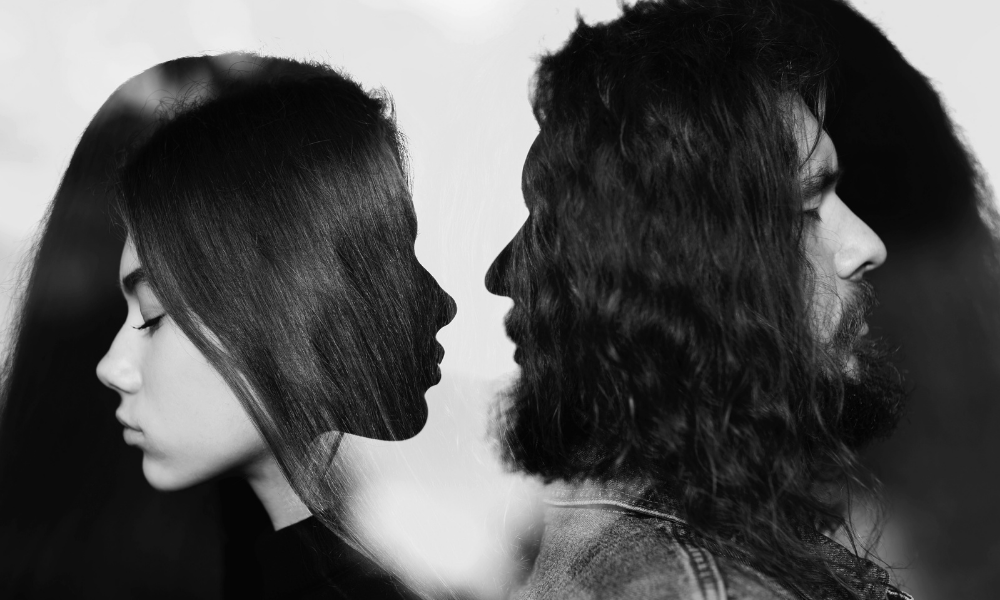
There’s a fine line between codependency and dependency that can easily be crossed in our relationships with others. Sometimes we are so quick to judge other people’s relationships, we overlook our own.
Do you find yourself making sacrifices to make those around you happy? Are you guilty of loving those around you “too much”? Do you lean toward a “we” mentality rather than a “me” mentality? Well, you may be in a codependent relationship.
Codependency can take on many forms, let’s dive into what it means to have a codependent personality and how to overcome it.
What does it mean to be codependent?
The term was first coined around the context of alcoholism and addiction and over time transformed into a broader context to describe unhealthy relationships where one person acts to serve and please the other person.
To put it simply, codependent relationships are composed of one partner who needs the other and another partner who needs to be needed.
Codependency occurs between romantic partners, family members, and friends, where one person takes the role of the needy, dependent one and the other takes the role of the enabler.
Both roles are equally dysfunctional and can happen naturally without either one realizing that they’ve taken on such roles.
How do codependent relationships start?
No one is born codependent. Codependency can arise for a variety of reasons. Experts say codependency is a behaviour learned from various situations and environments.
Destructive parental relationships
When someone gets into the habit of sacrificing their happiness and needs to please others, it’s likely their parental figures made them feel like it was their duty to do so. In this scenario, the child is taught that their needs are less important than those around them.
This can also be true for the enabler. An enabler may have parents who’ve waited on them hand and foot, making them believe that it’s normal for people to sacrifice themselves for their own happiness. The child may seek out a similar relationship without realizing that this dynamic is harmful.
Living with a mentally ill or physically ill person
Growing up with an ill family member transforms people into caregivers. Assuming the role of a caregiver at a young age can enforce the idea that the needs of others come first and foremost.
This person can develop the idea that their identity and self-worth is defined by taking care of others.
Abusive family dynamics
Physical, sexual, and emotional abuse can cause many issues to arise, codependency being one of them. When someone has a history of abuse it’s common for them to suppress their emotions and thereby focusing their energy on the needs of others instead of themselves.
It’s also common that someone who was abused will seek out abusive relationships since it’s the only thing they know.
4 warning signs you’re codependent
Lack of balance in the relationship
If you’re in a one-sided relationship where one person is constantly sacrificing their needs to please the other, that’s an automatic red flag. In all relationships, we make sacrifices for others from time to time, but when we see this tendency happening the majority of the time – this can be a sign of codependency.
You have an exaggerated sense of responsibility for others
If you tend to feel responsible for how other people feel you may have a control problem. Feeling the need to control others’ happiness, success, and livelihood is a sign you NEED to be needed. Your constant need to rescue, fix or change a person may mean that you need to reevaluate your relationship.
You have a “we” before “me” mindset
When you put your relationship above yourself you begin to become dependent on the other person for everything. Your happiness, your self-worth, your identity begins to revolve around the other. This is a dangerous situation because you can easily lose yourself and become utterly dependent on the other person.
You fear abandonment and have obsessive needs for approval
When you are afraid that people will leave you at any given moment you begin to do anything you can to prevent that from happening. You require approval from others to give yourself a sense of security.
How to overcome codependency
If you’re noticing that you’re suffering from codependent behavior here are some ways for you to break free from this cycle.
Communication
Once you’re aware that you’re in a codependent relationship it’s important to communicate with each other to come to an understanding of certain habits that need to work on. Both sides need to make an effort to break this codependent cycle.
Counselling
It could be useful to get a professional opinion to help guide you to really get to the root of your codependency issues and find ways to set boundaries for yourself. Avalon has free counseling available, make an appointment by contacting your nearest centre.
Reconnect with loved ones
When we become consumed by a relationship, we tend to neglect those around us and in turn isolate ourselves. Having strong ties with friends and family is important to help you reconnect with yourself.
Having a hobby
Make time for “me time” by rekindling old hobbies or start a new one! Carving out time to do something just for you can help bring a sense of joy and purpose into your life outside of your relationships.
Seek support
If you’re struggling with codependency in your relationships or any other vices, reach out for support. At Avalon, we have a warm and welcoming community of women seeking recovery from addiction. Check out our meeting schedule to find the variety of daily meetings we have available.
